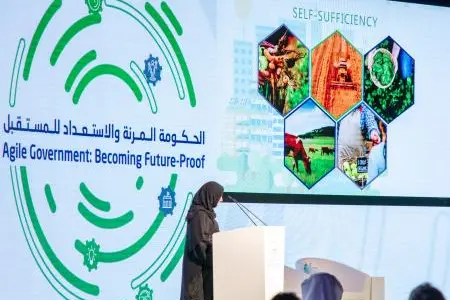PHOTO
Dubai: The array of current emergencies impacting countries around the world were starkly highlighted by Sheikha Shamma bint Sultan bin Khalifa Al Nahyan, Chief Executive Officer for the Alliances for Global Sustainability. Her Excellency was speaking during the final key note address at the Public Policy Forum 2020, when she spoke about the important role of cities in sustainable development.
“Over billions of years the Earth has been like a battery, slowly charged, storing energy from the sun in plants and fossil fuels. But today, we as humans are draining that energy much faster than it can be replenished. Decades of turning a blind eye to pressing issues such as global warming, air pollution, urban sprawl, waste disposing, ozone layer depletion, water pollution and climate change are resulting in unforeseen disaster on a scale that we are struggling to rectify. In the last few months alone we have seen two natural disasters and a major health epidemic sweep across three countries that account for almost fifty per cent of the world,” said by Sheikha Shamma.
“Last summer, we saw almost 80,000 fires across the Brazilian Amazon- the highest number than at any point since 2010. The loss of biodiversity, impact on our shared climate and detrimental effect on the health of the countless tribes that call the Rainforest home has been monumental. Devastation has gripped southern Australia with wildfires destroying more than 2,000 homes, killing more than half a billion animals and causing destruction across 17.9 million acres of land. To put that into perspective, that’s the size of Belgium and Denmark combined.
Meanwhile the coronavirus has infected more than 73,000 people and resulted in close to 1,900 deaths. The pace at which this virus has spread has led to the World Health Organization to declare a health emergency,” she added.
Sheikha Shamma highlighted that cities are key to the changes that the global community needs to make to address these pressing issues, saying that despite cities only occupying two percent of total land, they contribute to 70 percent of the global economy, account for over 60 percent of global energy consumption, are responsible for 70 percent of greenhouse gas emissions and generate 70 percent of global waste.
“It’s safe to say that the way in which cities are designed and developed can have a significant impact on the state of the world and therefore resilience must be a priority in building a foundation for increased social, economic and environmental strengths,” said Sheikha Shamma.
UAE PPF 2020 was the latest edition of the annual forum that was organised by the Mohammed bin Rashid School of Government (MBRSG) in collaboration with the Mohammed bin Rashid Centre for Government Innovation (MBRCGI) Its theme this year was ‘Agile Government: Becoming Future-Proof.’
-Ends-
© Press Release 2020Disclaimer: The contents of this press release was provided from an external third party provider. This website is not responsible for, and does not control, such external content. This content is provided on an “as is” and “as available” basis and has not been edited in any way. Neither this website nor our affiliates guarantee the accuracy of or endorse the views or opinions expressed in this press release.
The press release is provided for informational purposes only. The content does not provide tax, legal or investment advice or opinion regarding the suitability, value or profitability of any particular security, portfolio or investment strategy. Neither this website nor our affiliates shall be liable for any errors or inaccuracies in the content, or for any actions taken by you in reliance thereon. You expressly agree that your use of the information within this article is at your sole risk.
To the fullest extent permitted by applicable law, this website, its parent company, its subsidiaries, its affiliates and the respective shareholders, directors, officers, employees, agents, advertisers, content providers and licensors will not be liable (jointly or severally) to you for any direct, indirect, consequential, special, incidental, punitive or exemplary damages, including without limitation, lost profits, lost savings and lost revenues, whether in negligence, tort, contract or any other theory of liability, even if the parties have been advised of the possibility or could have foreseen any such damages.




















